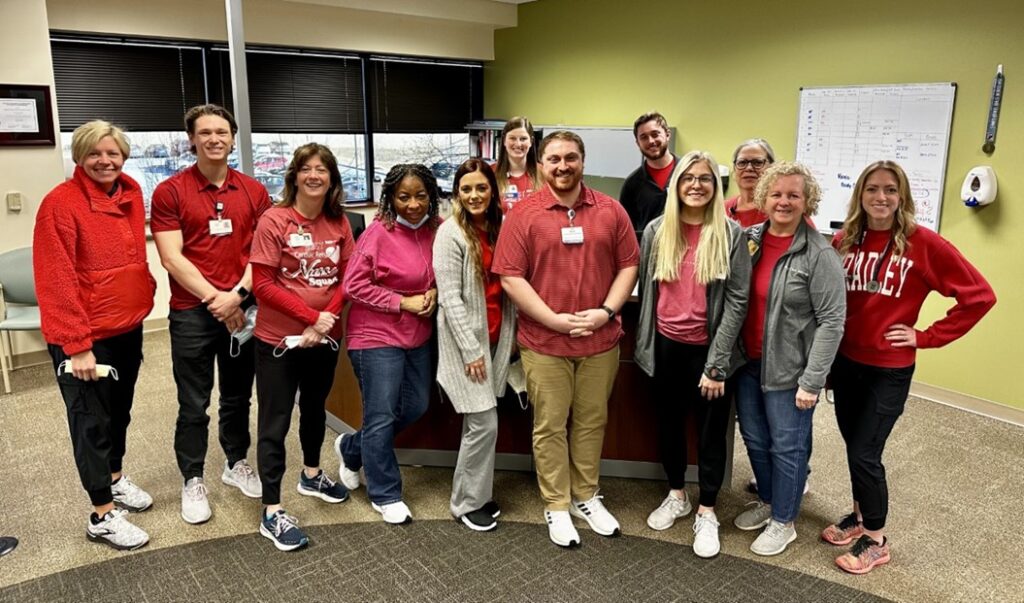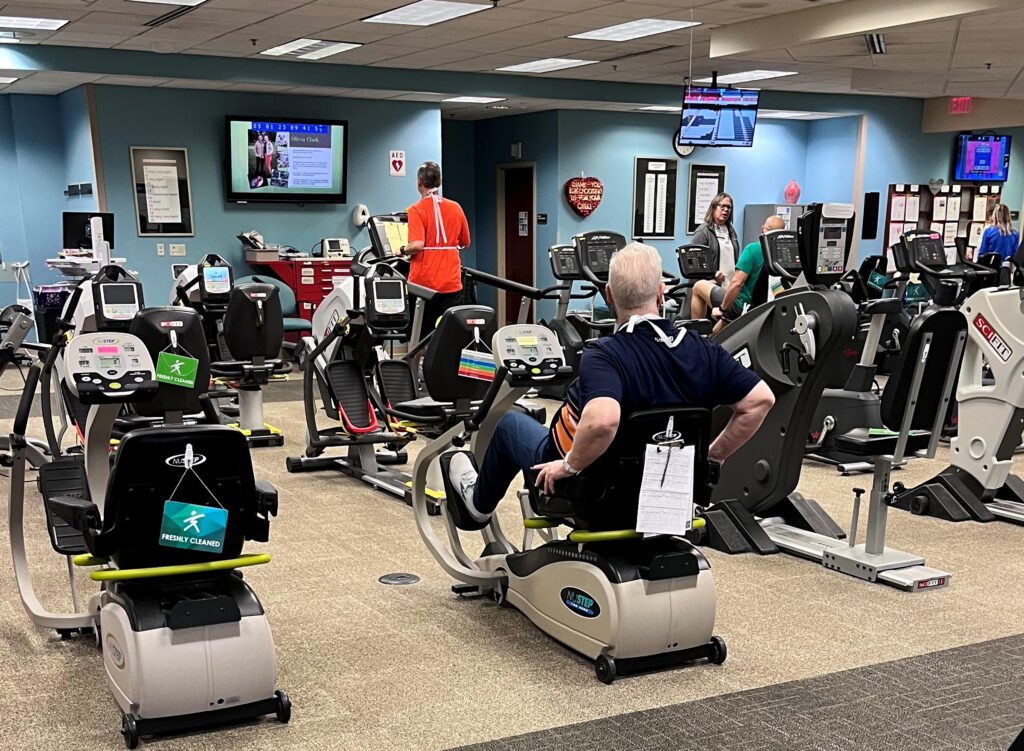
At the Heart Care Institute, located at the Barnes-Jewish West campus, the cardiac rehab program provides care and education to patients after they experience heart surgery or a serious cardiac event. The team of physicians, nurses, exercise physiologists, and dietitians work individually with patients to help them recover and strengthen their heart health.
Cardiac rehab is essential to recovery, and individuals who complete the program have greatly improved outcomes in re-admission, complications, and overall mortality versus those who do not. Barnes-Jewish West was also the very first facility to offer an intensive cardiac rehab option called the Pritikin program. Clinical Director Dr. Linda Peterson explains that Pritikin offers double the number of sessions for patients, and is covered by Medicaid and many other insurance plans. The outcomes and benefits of the Pritikin intensive cardiac rehab (ICR) are even more pronounced and life-changing for participants.
Instead of 36 sessions of exercise-based rehab, ICR patients have a total of 72 sessions; each of the 32 exercise sessions is accompanied by an education session where patients have individualized instruction on heart healthy eating (including nutrition, shopping, and cooking instruction), lifestyle, and healthy mind practices.

Nutritionist and Diabetes Educator Dotti Durbin works with patients to develop a diet that will accommodate their individual needs. She notes that the Pritikin diet is low salt, low fat, and low cholesterol, with a focus on eating lots of fruit and vegetables. It can be personalized for patients who have special dietary restrictions, or conditions like diabetes that require different considerations to be made.
With ICR, patients’ families can also participate in the education portions. This provides the patient with crucial support at home, especially if someone else is doing the grocery shopping and cooking in the home. ICR patients have lower BMI and improved mental health at the end of the program when compared with patients who complete traditional CR.
“Small changes add up”, says Durbin. “The more choices someone has to make, the harder it is.” She teaches participants shortcuts to look for healthier options based on a food’s nutrition label, such as looking for sugar in the first three ingredients, or comparing the sodium content to the calorie count. “If the sodium is less than the number of calories, it is a low sodium food”.
Nurse Manager Jennifer Jonagan has been at the HCI for 11 years. She loves working with the patients at cardiac rehab, and notes that since they complete the program over 12-18 weeks, the employees all get to know the patients and their families on a personal level. She has also seen an increase in the connection between patients since education classes have switched from individual rooms to a larger space where patients convene together and can compare experiences.
The HCI cardiac rehab team is providing state-of-the-art care to a diverse range of patients, and improving their health and quality of life after what can be a very difficult and scary experience. These patients benefit not only from the excellent exercise facilities and education programs, but from the fact that the physiologists, doctors, nurses, and dieticians all truly care about each patient and are invested in their outcomes. This clinical team is doing important and impactful work, and continues to exemplify excellence in patient care.